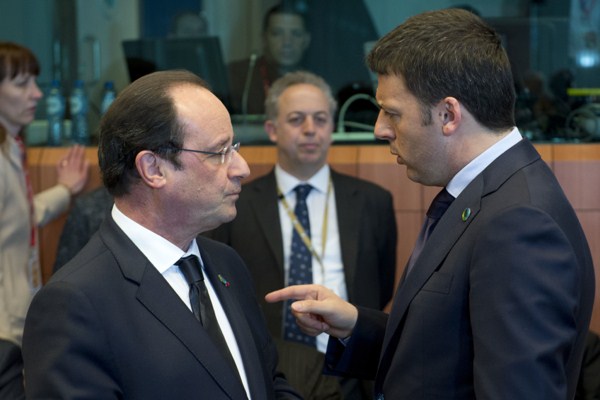After a several weeks of back-and-forth with the European Union over France’s 2015 national budget, French Finance Minister Michel Sapin announced yesterday that he will cut France’s budget deficit by an additional $4.6 billion to fall in line EU budgetary rules. The European Growth and Stability Pact (GSP) requires that all member state budget deficits fall under 3 percent of GDP. The original budget the French submitted to the European Commission, the executive body of the EU, estimated that France’s deficit would rise to 4.4 percent of GDP.
It is understandable that French President Francois Hollande, facing slow economic growth and strong domestic pressure, would not want to comply with the EU regulations, which limit his options in terms of domestic spending to stimulate growth. “Hollande faces an extremely difficult political situation at home,” explains Pawel Tokarski, researcher at the Berlin-based German Institute for International and Security Affairs, in an email interview. “He is confronted by the left wing of his own party and scores extremely low in the polls.”
Hollande, who ran on a reform platform during the 2012 presidential campaign, is also facing growing pressure from the far right, according to Cinzia Alcidi, head of the economic policy unit at the Centre for European Policy Studies in Brussels. “In France,” Alcidi wrote in an email interview, “the political risk of the Front National gaining more ground in response to fiscal tightening pursued by the government is perceived as being much more important than respecting the EU rules.”

